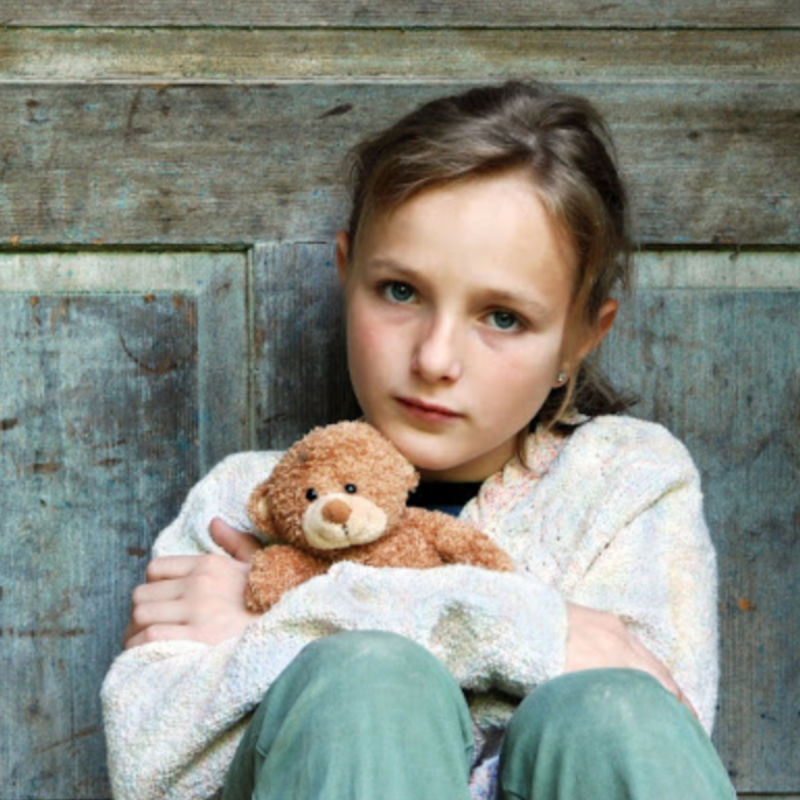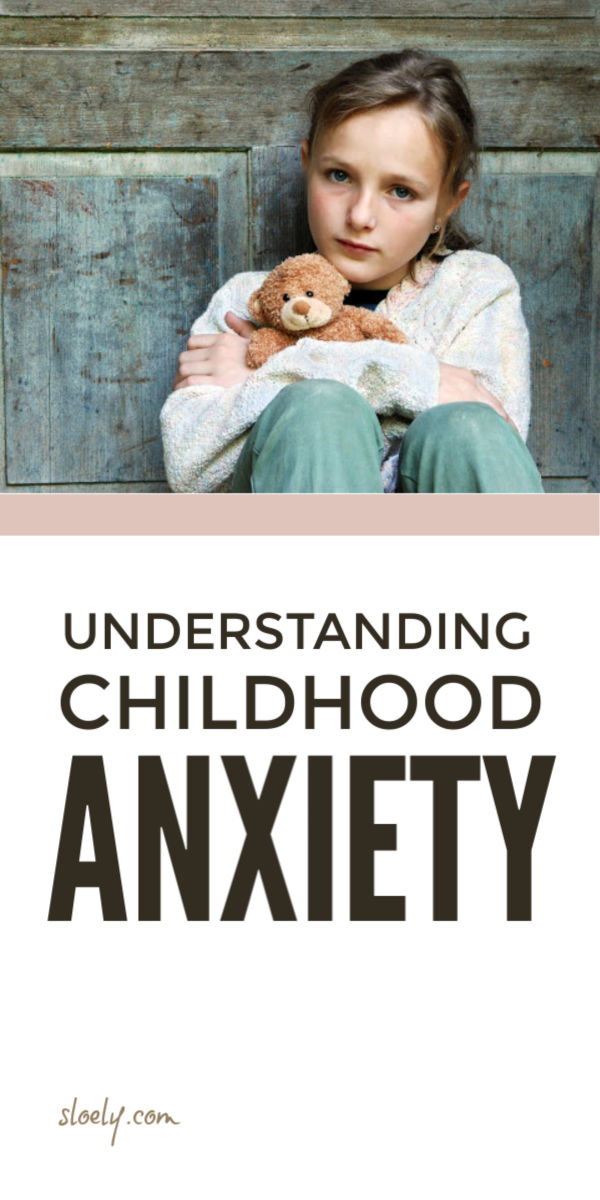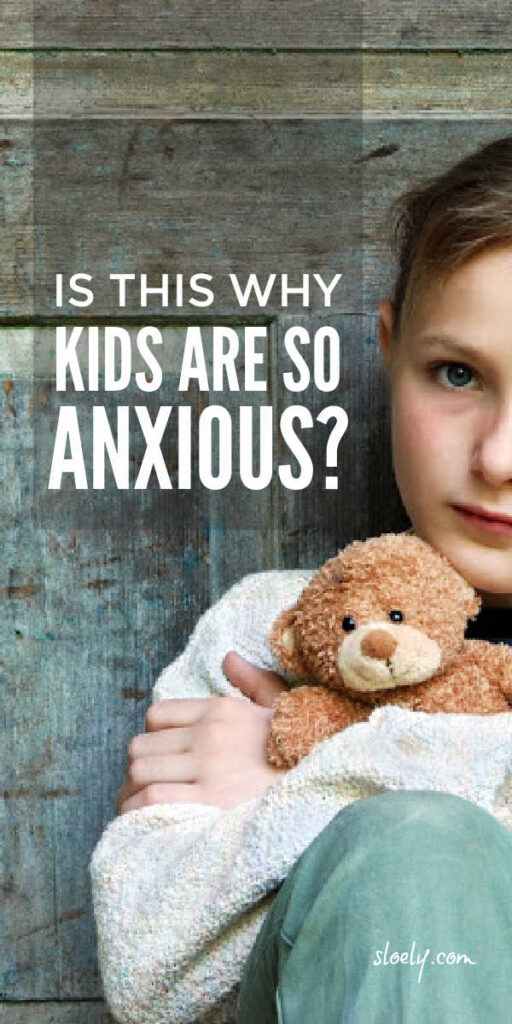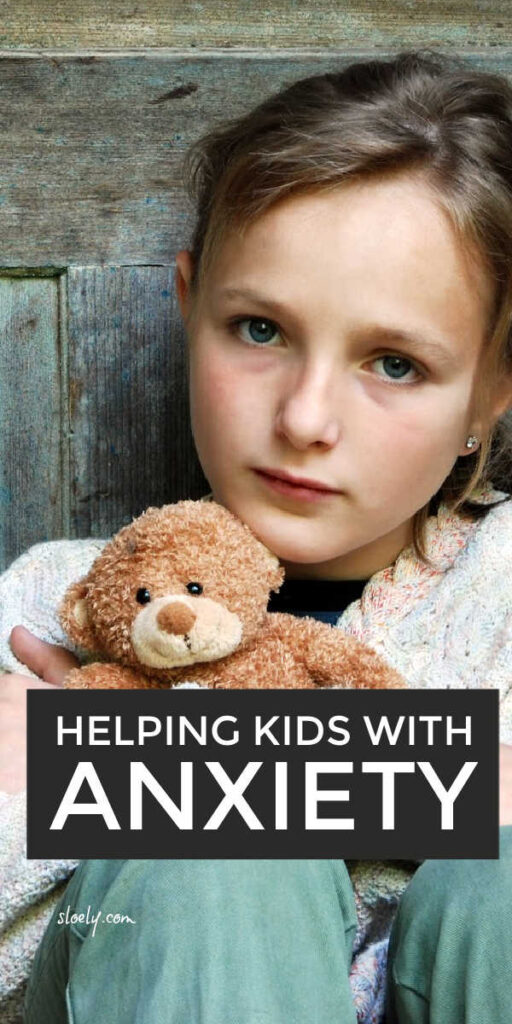 Last year my 6 year old went missing in the park. As I asked frantically if anyone had seen her, my fear mounted, burning in my stomach.
Last year my 6 year old went missing in the park. As I asked frantically if anyone had seen her, my fear mounted, burning in my stomach.
Time seemed to stop still.
I was physically shaking, as I tried to decide at what point I should call the police.
And then she reappeared.
She'd been gone 10 minutes as we were playing hide and seek, and I'd panicked.
She was out of sight and not answering as we shouted, but heck, we were playing hide and seek so why on earth would she?
I felt like a complete idiot, as with an overwhelming, wave of relief I hugged her tight.
But you know what? My crazy panic attack of anxiety wasn't just me being stupid. It's pretty common. Us parents today are struggling with crippling levels of anxiety about our children, that previous generations didn't have.
And truly crazily, our anxiety is actually making our children anxious. We've got locked in a cycle of anxiety that coping skills can't touch because they don't tackle the root problem.
But battling my own anxiety, I discovered a big explanation for the problem hiding in plain sight in that game in the park.
That insight has transformed my parenting and helped us embrace a less anxious, happier life.
I'll share that insight in a moment - I truly hope it helps - but first wanted to talk briefly about the levels of childhood anxiety today.
We're not alone. Lots of families are struggling.
1. Anxiety Signs In Children
We are seeing signs and symptoms of anxiety in so much of children's behaviour today: self harm, eating disorders, drugs and more.
Teachers, especially in high school, are reporting an epidemic of childhood anxiety.
And although, lots of work has been done to help children develop coping skills, there has been a frightening growth in the number of college age kids on anxiety medication.
So why don't these coping skills help?
2. Anxiety Coping Skills
There are all sorts of anxiety relief tips and remedies out there that are meant to help children calm down and stop worrying.
For younger children there are some lovely remedies such as breathing exercises and calm down bottles and calming play dough and homemade fidget spinners.
And they do help. Especially very sensory kids.
But they only provide immediate relief and don't get to the bottom of why so many children these days struggle with anxiety.
Surprisingly - and worryingly - neither do many of the articles written offering parents and teachers advice on childhood anxiety.
3. Childhood Anxiety Advice
Now don't get me wrong. There is some great advice out there. I always find Natasha Daniels, who provides support for anxious children from toddlers to teens, helpful.
There's also some incredibly valuable work being done on social media, social contagion and mental health in teens.
Social media is a huge issue as highlighted by the suicide of 14 year old Molly Russell who consumed self harm content on Instagram.
But we're seeing heightened anxiety levels in pre-teens, so it's not just about social media.
The question then is what else has changed?
Well, diet has and may be playing a part. We now understand more about the complex connection between gut and mental health.
But one big simple thing has changed childhood AND parenting fundamentally.
And it was that big thing I saw so clearly that panic stricken day in the park when I could not see my 6 year old for a whole 10 minutes.
It was staring me in the face: children today spend almost no time out of sight of an adult.
The implications of that are enormous.
4. Out Of Sight
When I was 6 I played outdoors for hours on end out of sight of mum. And the other mums.
We ALL did.
The mums were out back in the kitchen - it was the seventies! - and us kids were at the front.
Out of sight.
When I was 6, I was even allowed off the street without an adult. In fact, us kids would be sent several blocks away on our own for shopping.
We crossed roads on our own. We took a bus to school on our own. And we played and played and played on our own, out of sight of grown ups who were never quite sure where we were.
It wasn't because the world was a safer place.
In Britain in the 1970s there were frequent bombings, infamous serial killers, like the Black Panther and Yorkshire Ripper, on the loose and politics was so crazy we only had electricity for 3 days a week one winter!!
There was LOTS to worry about.
But parents trusted kids - even when small - to look after ourselves and each other, for ever longer time, out of sight, of any adult.
So together we progressed through essential milestones of separation and independence.
Trusting small children to be responsible for themselves amongst other kids is a profoundly different experience of separation to handing our kids over to other adults for "childcare".
Crazily now we let our kids roam the globe on their screens but not to walk to school alone.
Our children are missing out on critical child development milestones BUT so are we parents. We are both stuck in the necessarily anxious dependency of a child's first years.
Denied early opportunities to look after themselves out of sight of any adult, children fail to learn the confidence they need to thrive in a chaotic and worrying world.
At a basic level, how can we expect kids to be confident they can solve their problems when we never trusted them to do so?
That day in the park, I realised I couldn't give my child the trust my parents gave me and that was a problem for both of us. It locked us into a cycle of anxiety making us both miserable.
So then my big question was, how can we parent differently without crippling anxiety? How can we give children real freedom.
5. Childhood Freedom
Obviously there aren't magic bullets, and we've all got catching up to do but there are great ideas in these classic books about free play ...
- Free Range Kids by Lenore Skenazy
- Last Child In The Woods by Richard Louv
In my own family we found these simple steps to build independence helped us work critical separation milestones into daily life.
And these lovely and surprisingly powerful ways to calm down eased anxiety.
But the most powerful change was just knowing anxiety wasn't our crazy weakness or personal failing, it was about the way we lived and we could change that and be a whole lot happier with life whatever it threw at us ...








Leave a Reply